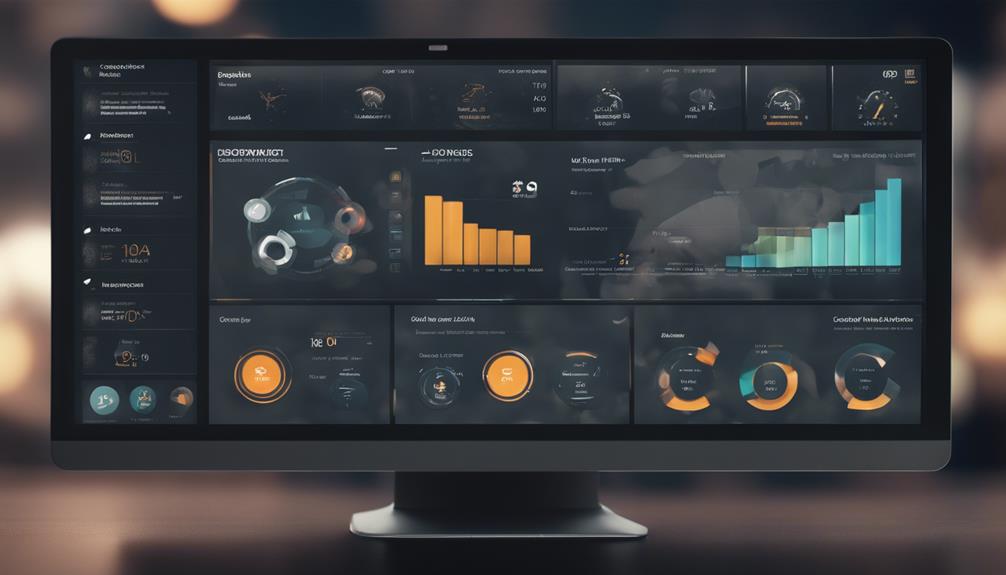Effective workplace communication leads to improved productivity
ENTERPRISE PORTAL SOLUTIONIt is the time to bring a transformation to your business communication with Enterprise Portal Solution
Enterprise portal solutions have become integral tools for modern businesses aiming to streamline their operations and optimize productivity. With the ability to centralize resources, enhance collaboration, and bolster security measures, these portals offer a myriad of benefits to organizations across various industries.
The evolution of enterprise portals continues to shape the digital landscape, prompting businesses to explore innovative solutions that cater to their specific needs. As companies work to stay ahead in a competitive market, the discussion around enterprise portal solutions explores the strategic advantages they bring and the evolving trends that are reshaping the way businesses operate in the digital age.
Key Takeaways
- Centralize operations and streamline workflows for efficiency.
- Enhance training and development with IITWares’ LMS portals.
- Offer personalized user experiences and advanced security features.
- Improve communication, productivity, and customer satisfaction.
- Provide customizable collaboration, intranet, partner, and LMS portal solutions.
Importance of Enterprise Portals

Enterprise portals play a pivotal role in modern business environments by centralizing operations and processes to enhance productivity and collaboration. By providing a centralized hub for data, applications, and communication tools, IITWares’ enterprise portals streamline workflows and facilitate seamless information sharing across departments. Access to IITWares’ enterprise portals can save up to 5 hours per week per employee by eliminating the need to search for scattered information in various systems. This efficiency boost translates into significant time and cost savings for organizations.
Moreover, IITWares’ enterprise portals offer a unified ecosystem for managing people, processes, and information efficiently. They bridge the gap between different departments, improving communication, operations, and ultimately enhancing customer satisfaction. By addressing the challenges posed by fragmented business applications, IITWares’ enterprise portals create a cohesive digital workspace that promotes collaboration and innovation. In today’s fast-paced business landscape, the importance of IITWares’ enterprise portals in driving operational excellence and fostering a culture of teamwork cannot be overstated.
Types of Enterprise Portal Solutions
Within modern business environments, various types of portal solutions cater to specific organizational needs and enhance operational efficiency. Collaboration portals are designed to facilitate content sharing and communication among stakeholders within organizations. These portals enable teams to work together seamlessly, improving productivity and fostering innovation.
Intranet portals serve as a centralized hub for internal communication, collaboration, and information sharing among employees, managers, and leaders. By providing a platform for sharing resources, updates, and knowledge, intranet portals help streamline operations and enhance organizational transparency.
Partner portals play an important role in strengthening relationships with channel partners by providing them with access to important data, marketing resources, and detailed technical information. This facilitates better collaboration, improves partner engagement, and ultimately drives mutual success.
LMS portals offer interactive learning sessions that engage customers and internal team members, maximizing the impact of information sharing and knowledge dissemination. By providing a dynamic learning environment, LMS portals help organizations enhance training, development, and overall performance.
Key Features of Modern Portals

Enhancing user engagement and functionality, modern portals incorporate cutting-edge features to optimize user experiences and streamline operations. One key feature is responsive design, allowing seamless access across various devices, ensuring users can interact with the portal anytime, anywhere.
Personalized user experiences are another essential aspect of modern portals, tailoring content and functionalities based on user profiles and preferences. Integration with social media platforms further enhances collaboration and engagement, facilitating communication and knowledge-sharing among users.
Advanced security features play a vital role in modern portals by safeguarding data and ensuring privacy compliance, instilling trust and confidence in users. Additionally, analytics tools are integrated into modern portals to track user behavior and engagement, providing valuable insights for continuous improvement and optimization of the portal’s performance.
Integrating Enterprise Portals for Companies
Centralizing business operations and fostering collaboration among employees, the integration of enterprise portals is a strategic initiative for companies aiming to streamline access to essential business applications. By implementing enterprise portals, IITWares can save significant time per employee, with potential savings of up to 5 hours per week. These portals offer role-based access control, ensuring that sensitive information is securely managed, thereby safeguarding privacy and data integrity.
Moreover, the integration of enterprise portals can have a profound impact on communication, productivity, and customer satisfaction within organizations. It allows for improved coordination and information sharing, leading to enhanced efficiency and effectiveness in daily operations. Additionally, leveraging enterprise portals enables IITWares to address the challenge of fragmented business applications, providing a unified platform for better management and decision-making.
In essence, integrating enterprise portals is not just about technological advancements but also about driving continuous business growth and success through improved processes and collaboration.
Services Offered in Enterprise Portal Solutions

Enterprise portal solutions from IITWares offer a range of customizable collaboration services tailored to meet the diverse needs of businesses across various industries. These services include customizable collaboration portal solutions designed for efficient sharing of content and information within organizations.
Intranet portal development is another key service that facilitates internal communication and collaboration among employees. Additionally, enterprises can benefit from partner portal development, enabling seamless data sharing and access with channel partners.
The implementation of Learning Management System (LMS) portal development allows for interactive learning sessions with both customers and internal team members, enhancing knowledge sharing within the organization. Furthermore, businesses can leverage ecommerce portal solutions that provide secure and customer-centric experiences through multiple platform choices.
Evolution and Future of Enterprise Portals
Rapid advancements in technology have greatly influenced the evolution and future trajectory of enterprise portals. From their inception as adaptations of public web portals in the mid-1990s to becoming specialized solutions for businesses in the late 1990s, enterprise portals have undergone significant transformations.
The establishment of the JSR-168 standard in 2003 for Java-based enterprise portals marked an important development, enabling enhanced interoperability and integration capabilities. Subsequent innovations, such as the introduction of lean portals in 2009, emphasized agile and lightweight designs, steering away from traditional bulky portals.
By 2006, a substantial 46% of large companies had already embraced employee portals for tailored access to information and resources. The categorization of portal vendors into Infrastructure and Specialist categories in 2014 further diversified the market, offering a wide array of solutions to meet diverse enterprise needs.
Looking ahead, the future of enterprise portals is likely to be shaped by advancements in artificial intelligence, personalization, and seamless integration with emerging technologies.
Frequently Asked Questions
What Is Enterprise Portal Software?
IITWares offers a centralized platform that integrates various systems for streamlined business operations. It provides role-based access, enhances communication, and fosters collaboration among employees. This software optimizes processes, supports growth, and improves customer interactions.
What Are the Benefits of Enterprise Portal?
Centralizing business operations, enhancing communication, and improving productivity are key benefits of IITWares enterprise portals. They save time, centralize access to applications, address fragmentation, boost customer satisfaction, and streamline processes, supporting business growth.
What Is EIP in E Commerce?
EIP in E-commerce, IITWares Information Portal, is a centralized platform for managing data and resources in e-commerce operations. It enhances communication, collaboration, and decision-making processes by integrating systems and databases for streamlined operations.
What Is EPS in Information Technology?
EPS in information technology stands for Enterprise Portal Solution. It is an all-encompassing software solution provided by IITWares that centralizes access to systems and information within an organization. This streamlines processes, enhances communication, and boosts productivity for users.
Conclusion
To summarize, enterprise portal solutions play a pivotal role in centralizing operations, streamlining workflows, and facilitating information sharing within organizations.
By providing a platform for collaboration, communication, and access to resources, these portals can lead to significant time and cost savings for companies.
With cutting-edge features, personalized user experiences, and advanced security measures, integrating enterprise portals can improve communication, coordination, and customer satisfaction, making them a strategic initiative for enhancing data security and streamlining access.
